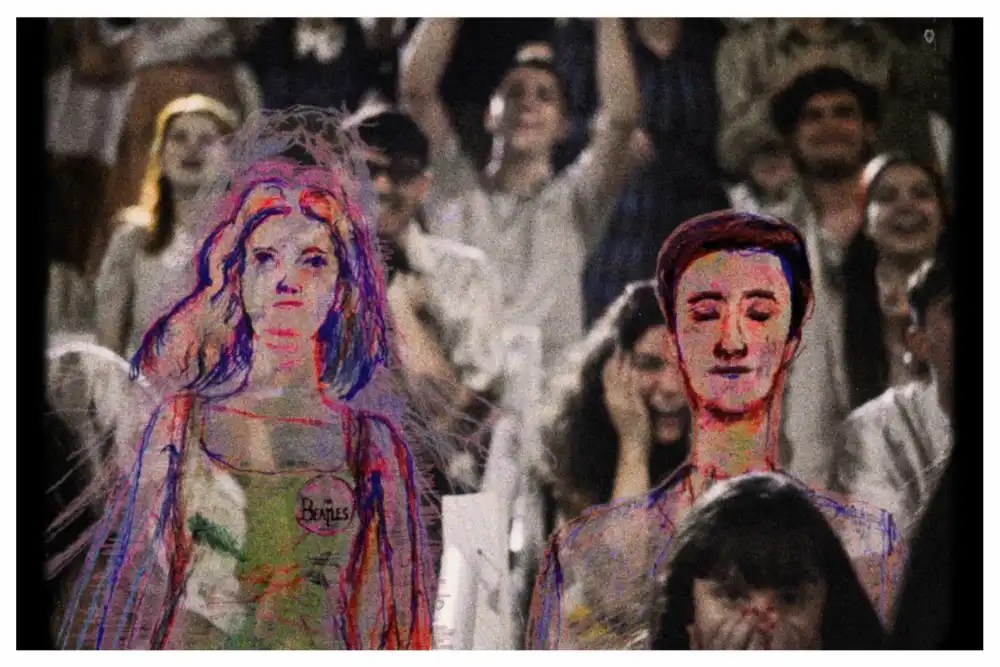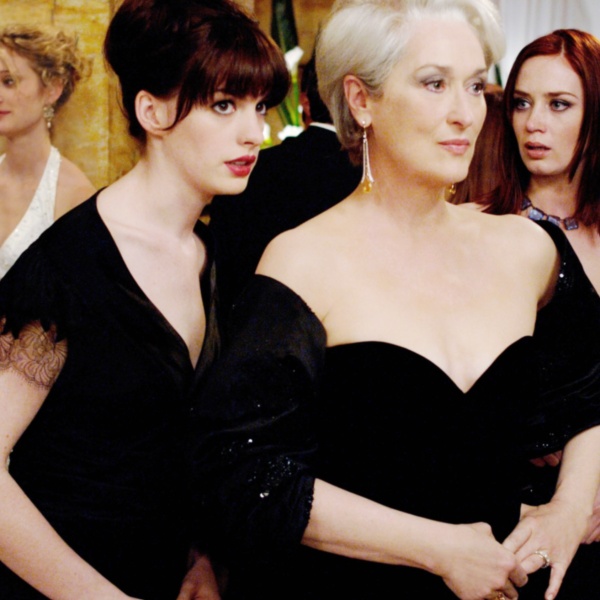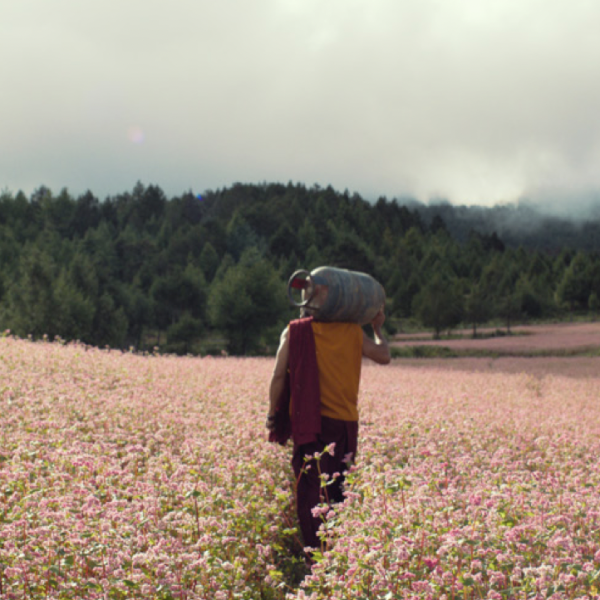
“TWST — Things We Said Today,” the latest work of cinematic magic from the Romanian director and screenwriter Andrei Ujica, is both elaborately crafted and a heck of a lot of fun. With its title aptly referring to the 1964 Beatles song that McCartney described as a “future nostalgia,” the all-archival documentary leisurely begins with the band’s arrival in NYC for their August ’65 concert at Shea Stadium, and then propels fast and furiously forward, zig-zagging back in time and through multiple spaces.
The film is culled from nearly 100 hours of 8mm home movies (sourced from Ebay) and another 100-plus hours of 16mm news footage shot around the weekend of August 13-15, 1965, mostly by the “Big Three” (ABC, CBS, and NBC). It also deftly juxtaposes the Beatles (trailed by paparazzi and forced to endure carnivalesque press conferences) with their obsessed female fandom (likewise pursued by reporters attempting to understand this newfangled “Beatlemania”). Additionally, “TWST” is able to deftly place this fragment of pop history in its proper American context by interweaving images from the other headline events of that month — the Watts riots and the World’s Fair. Strange days indeed.
And then there’s the more personal meets political layer, unsurprising coming from the filmmaker behind 2010’s three-hour tour de force “The Autobiography of Nicolae Ceauşescu,” and the seminal “Videograms of a Revolution” (co-directed with Harun Farocki) nearly two decades before that. While those masterworks utilized footage from Ujica’s home country’s National Archives and state TV (along with amateur video), respectively, to presciently put on display the government-toppling power of the moving image, “TWST — Things We Said Today” is similarly revolutionary in its own unique way (starting with the fact that “TWST” opens with Chuck Berry’s “Roll Over Beethoven” — and then goes on to feature no Beatles songs at all).
In fact, the Beatles had infiltrated Ujica’s own youthful mind back when he was growing up in an agricultural collective in the 1960s, “The White Album” a constant companion as he wrote a story titled “Isabela, Friend of the Butterflies.” It’s this work that the director now passes along to his “TWST” alter ego, an aspiring writer named “Geoffrey,” a hand-drawn character superimposed mostly over the news footage. Geoffrey, in turn, is based on the New York poet and essayist Geoffrey O’Brien, who actually met the Beatles through his dad Joe, a DJ at the first radio station to play them. (Snippets from Joe’s WMCA broadcasts are likewise strategically placed throughout the score.)
And by using O’Brien’s contemporary journals — and that of superfan Judith Kristen, which another animated apparition named “Judith” is based on — Ujica is able to craft a compelling, true-to-life fictional narrative of the lead-up to that legendary night in Queens; told from the parallel perspectives of NY’er Geoffrey and road-tripping out-of-towner Judith (who mostly pops up in the home movies along with her two equally Beatles-crazy girlfriends).
Interestingly, music and the musician’s role in shaping ’60s counterculture, and thus the course of history, seems to be on a lot of documentarian’s minds this year. Johan Grimonprez’s Sundance-premiering “Soundtrack to a Coup d’Etat” likewise employs the all-archival format and takes as its starting point one particular date: February 16, 1961. That was the day when jazz artists Abbey Lincoln and Max Roach crashed a UN Security Council meeting to protest against the murder of Patrice Lumumba, the DRC’s first democratically elected prime minister.

But unlike Grimonprez’s full volume revisiting/revising of history (involving multinational corporations, the military industrial complex, and of course a pro-assassination U.S. government), Ujica is aiming for something ever more subtle yet no less profound. Like a dogged detective he’s out to uncover the roots of a youth revolution, its hopes and dreams embodied in a change-making British band. One that occurred concurrently with a seething social justice uprising in the Watts neighborhood of LA, and clashed with a cheerily optimistic vision of our capitalist future in Flushing Meadows-Corona Park, just a jump over the Unisphere from Shea. (Naturally, 350 American companies were among the World’s Fair presenters that year.)
For the reality is that in August 1965, “hysterical” teen and tween fangirls outside NYC’s Warwick Hotel were being tossed about like rag dolls by aggressive police. While on the other coast a Black man in Watts was patiently making his case to a white reporter that equal rights trump states’ rights since we all live in “one America” — only to be cut off by a white national guardsman ordering him to move along. All the while it’s summer, so folks lazily lounge around in Central Park and soak up the sun at Jones Beach; or perhaps find themselves secluded in a World’s Fair universe in which a woman’s place is with her head in a bubble, preferably one that allows her to try on different hair colors.
But then a dreamer named Geoffrey suddenly enters the picture, and wanders around a concrete island conjuring up a story about a girl and some butterflies. A tale that ends at a long gone stadium, the sight of a grand transformation in which every butterfly flies high and free.
Grade: A
“TWST —Things We Said Today” premiered at the 2024 Venice Film Festival. It is currently seeking U.S. distribution.





